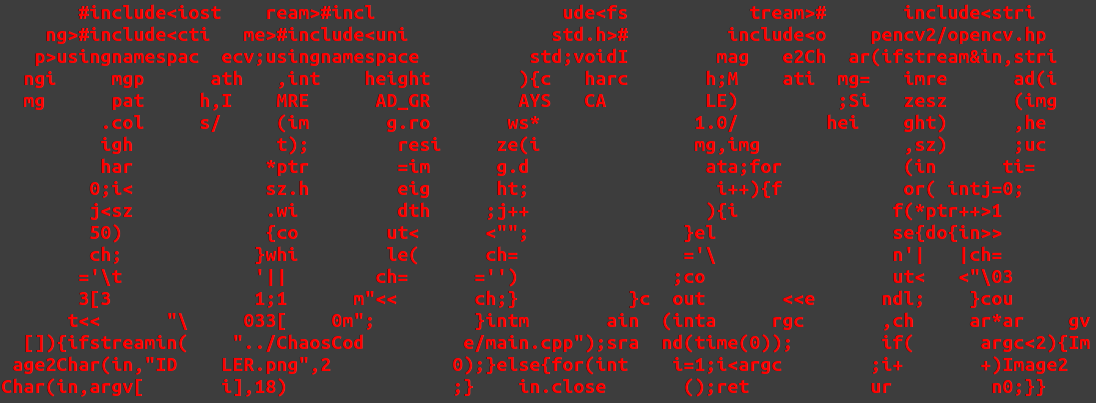Five Type of Set algorithms In <stl_algo.h>
Set algorithms: includes, set_union, set_intersection, set_difference, set_symmetric_difference. All of these algorithms have the precondition that their input ranges are sorted and the postcondition that their output ranges are sorted.
Each algorithm has two impletementation, one of them with user-defined Compare function. In this article, we just list the first one and annotate requirement check code.
Includes Prototype 1 2 bool includes (_InputIter1 __first1, _InputIter1 __last1, _InputIter2 __first2, _InputIter2 __last2)
Impletementation 1 2 3 4 5 6 7 8 9 10 11 12 13 14 15 16 17 18 19 20 21 22 template <class _InputIter1, class _InputIter2>bool includes (_InputIter1 __first1, _InputIter1 __last1, _InputIter2 __first2, _InputIter2 __last2) __STL_REQUIRES(_InputIter1, _InputIterator); __STL_REQUIRES(_InputIter2, _InputIterator); __STL_REQUIRES_SAME_TYPE( typename iterator_traits<_InputIter1>::value_type, typename iterator_traits<_InputIter2>::value_type); __STL_REQUIRES(typename iterator_traits<_InputIter1>::value_type, _LessThanComparable); */ while (__first1 != __last1 && __first2 != __last2) if (*__first2 < *__first1) return false ; else if (*__first1 < *__first2) ++__first1; else ++__first1, ++__first2; return __first2 == __last2; }
Set Union Prototype 1 2 3 _OutputIter set_union (_InputIter1 __first1, _InputIter1 __last1, _InputIter2 __first2, _InputIter2 __last2, _OutputIter __result)
Impletementation 1 2 3 4 5 6 7 8 9 10 11 12 13 14 15 16 17 18 19 20 21 22 23 24 25 26 27 28 29 30 31 32 template <class _InputIter1, class _InputIter2, class _OutputIter>_OutputIter set_union (_InputIter1 __first1, _InputIter1 __last1, _InputIter2 __first2, _InputIter2 __last2, _OutputIter __result) { __STL_REQUIRES(_InputIter1, _InputIterator); __STL_REQUIRES(_InputIter2, _InputIterator); __STL_REQUIRES(_OutputIter, _OutputIterator); __STL_REQUIRES_SAME_TYPE( typename iterator_traits<_InputIter1>::value_type, typename iterator_traits<_InputIter2>::value_type); __STL_REQUIRES(typename iterator_traits<_InputIter1>::value_type, _LessThanComparable); */ while (__first1 != __last1 && __first2 != __last2) { if (*__first1 < *__first2) { *__result = *__first1; ++__first1; } else if (*__first2 < *__first1) { *__result = *__first2; ++__first2; } else { *__result = *__first1; ++__first1; ++__first2; } ++__result; } return copy(__first2, __last2, copy(__first1, __last1, __result)); }
Set Intersection Prototype 1 2 3 _OutputIter set_intersection (_InputIter1 __first1, _InputIter1 __last1, _InputIter2 __first2, _InputIter2 __last2, _OutputIter __result)
Impletementation 1 2 3 4 5 6 7 8 9 10 11 12 13 14 15 16 17 18 19 20 21 22 23 24 25 26 27 template <class _InputIter1, class _InputIter2, class _OutputIter>_OutputIter set_intersection (_InputIter1 __first1, _InputIter1 __last1, _InputIter2 __first2, _InputIter2 __last2, _OutputIter __result) { __STL_REQUIRES(_InputIter1, _InputIterator); __STL_REQUIRES(_InputIter2, _InputIterator); __STL_REQUIRES(_OutputIter, _OutputIterator); __STL_REQUIRES_SAME_TYPE( typename iterator_traits<_InputIter1>::value_type, typename iterator_traits<_InputIter2>::value_type); __STL_REQUIRES(typename iterator_traits<_InputIter1>::value_type, _LessThanComparable); */ while (__first1 != __last1 && __first2 != __last2) if (*__first1 < *__first2) ++__first1; else if (*__first2 < *__first1) ++__first2; else { *__result = *__first1; ++__first1; ++__first2; ++__result; } return __result; }
Set Difference Prototype 1 2 3 _OutputIter set_difference (_InputIter1 __first1, _InputIter1 __last1, _InputIter2 __first2, _InputIter2 __last2, _OutputIter __result)
Impletementation 1 2 3 4 5 6 7 8 9 10 11 12 13 14 15 16 17 18 19 20 21 22 23 24 25 26 27 28 template <class _InputIter1, class _InputIter2, class _OutputIter>_OutputIter set_difference (_InputIter1 __first1, _InputIter1 __last1, _InputIter2 __first2, _InputIter2 __last2, _OutputIter __result) { __STL_REQUIRES(_InputIter1, _InputIterator); __STL_REQUIRES(_InputIter2, _InputIterator); __STL_REQUIRES(_OutputIter, _OutputIterator); __STL_REQUIRES_SAME_TYPE( typename iterator_traits<_InputIter1>::value_type, typename iterator_traits<_InputIter2>::value_type); __STL_REQUIRES(typename iterator_traits<_InputIter1>::value_type, _LessThanComparable); */ while (__first1 != __last1 && __first2 != __last2) if (*__first1 < *__first2) { *__result = *__first1; ++__first1; ++__result; } else if (*__first2 < *__first1) ++__first2; else { ++__first1; ++__first2; } return copy(__first1, __last1, __result); }
Set Symmetric Difference Prototype 1 2 3 _OutputIter set_symmetric_difference (_InputIter1 __first1, _InputIter1 __last1, _InputIter2 __first2, _InputIter2 __last2, _OutputIter __result)
Impletementation 1 2 3 4 5 6 7 8 9 10 11 12 13 14 15 16 17 18 19 20 21 22 23 24 25 26 27 28 29 30 31 32 template <class _InputIter1, class _InputIter2, class _OutputIter>_OutputIter set_symmetric_difference (_InputIter1 __first1, _InputIter1 __last1, _InputIter2 __first2, _InputIter2 __last2, _OutputIter __result) __STL_REQUIRES(_InputIter1, _InputIterator); __STL_REQUIRES(_InputIter2, _InputIterator); __STL_REQUIRES(_OutputIter, _OutputIterator); __STL_REQUIRES_SAME_TYPE( typename iterator_traits<_InputIter1>::value_type, typename iterator_traits<_InputIter2>::value_type); __STL_REQUIRES(typename iterator_traits<_InputIter1>::value_type, _LessThanComparable); */ while (__first1 != __last1 && __first2 != __last2) if (*__first1 < *__first2) { *__result = *__first1; ++__first1; ++__result; } else if (*__first2 < *__first1) { *__result = *__first2; ++__first2; ++__result; } else { ++__first1; ++__first2; } return copy(__first2, __last2, copy(__first1, __last1, __result)); }
